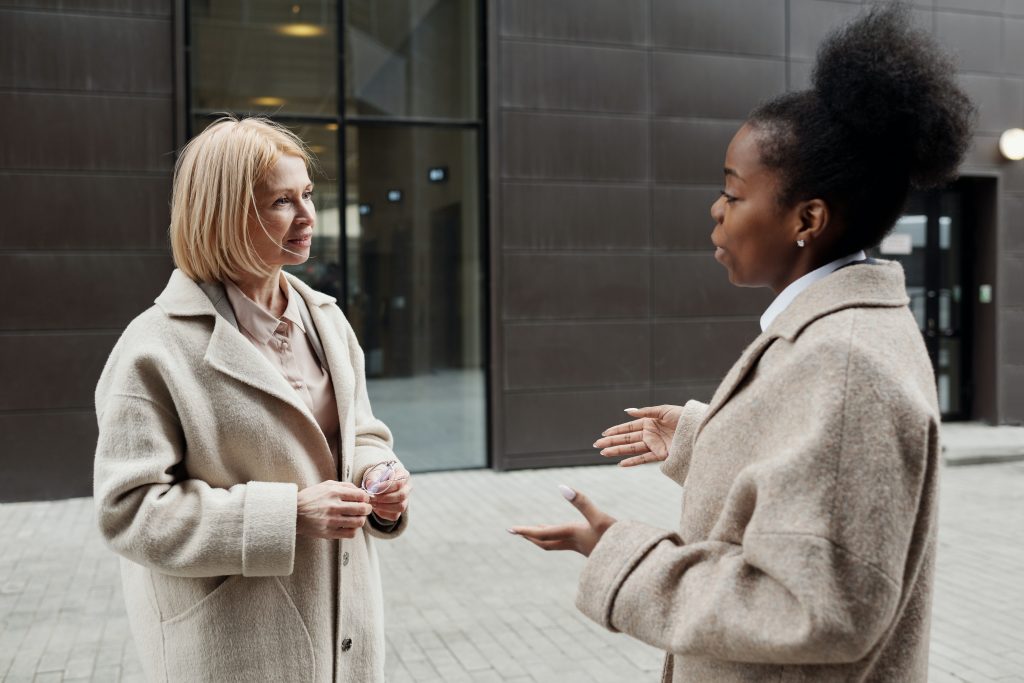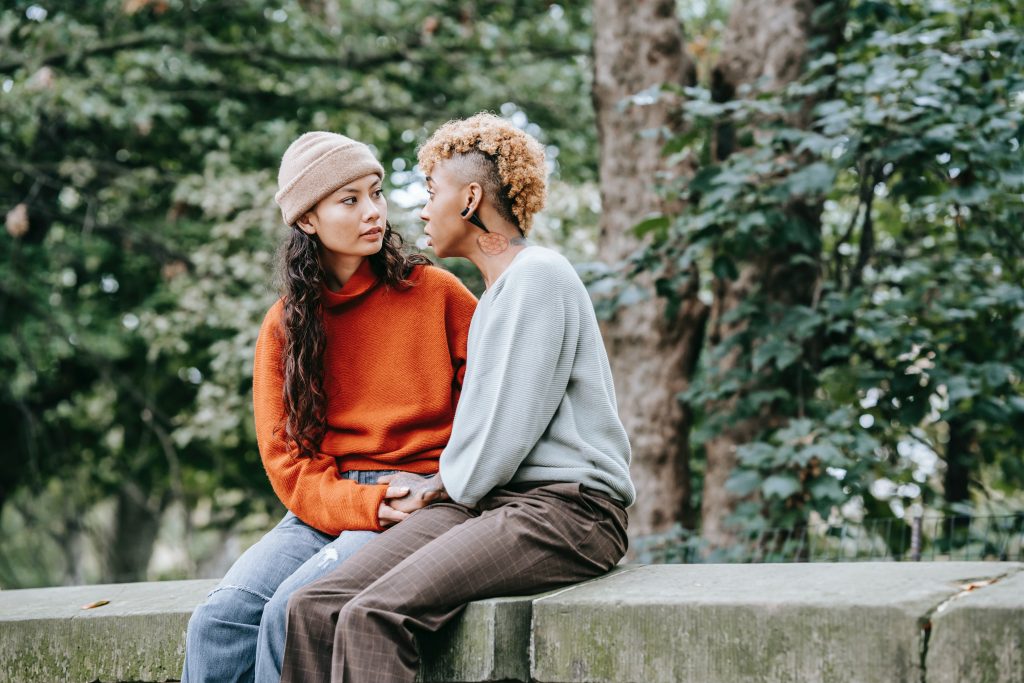Module 3: Developing Your Intercultural Skills
Listening
Listening is one of the most important skills you will need to work on to communicate, to learn from others, to create an open space for people to share their thoughts and life histories, to respect silences, and to demonstrate that you are a willing participant in the conversation. Listening is appreciated across cultures because it signals interest and respect and creates the opportunity for dialogue. This will always be a key skill to develop whether you are communicating with someone from a different culture, in another language, or learning about people’s life experiences.
Note, however, it is important to acknowledge that, for people who are deaf or hard of hearing, communicating with others will take a different form. The purpose will continue to be taking in and sharing stories, experiences, and getting used to considering other perspectives and ways of being, but the way it is done will involve different means to convey the message and further relying on other resources (e.g., adapted media or printed material) for further learning.
Activity: Becoming an Active Listener
Do you know what it means to be an active listener? On a piece of paper, list at least three behaviours you associate with active listening.
Then watch the video “How To Become An Active Listener” (5’51”), which summarizes ways to improve your active listening skills. As you watch this video presented by Emeroy Bernardo, take notes of useful suggestions for your own reference. The skills associated with active listening are transferable, you can use them in all types of interactions.
Think About This
- Were any of the three active listening behaviours from your list mentioned in the video?
- What did you miss? How does active listening help you in interactions with people from different cultural backgrounds?
Active listening is the ability to focus completely on a speaker to understand their message and respond thoughtfully. It involves using verbal and nonverbal techniques to show interest and keep the attention on the speaker.

The way people behave while listening may vary slightly across cultures. For example, in the video, the presenter recommends maintaining eye contact, but this may not be the case for some people from East Asian cultures, where eye contact may be intermittent or perhaps even avoided depending on the situation (e.g., when interacting with authority figures or the elderly). Similarly, in many Caribbean and Middle Eastern cultures, some interruptions while listening may be appropriate as they signal that the listener is engaged in the conversation. This form of interaction helps create an interactive narrative, a connection with other people; therefore, it is not generally seen as inappropriate in the right context. In addition, it is important to be aware of other behaviours when interacting (e.g., listening to or making eye contact) with people that may live with autism or other neurodiversity-related issues, as their responses and reactions may not be the same as yours even if you share the same cultural background.







Takeaway Points
- Active listening is a skill that you can develop any time while you converse with people inside and outside of your social circle.
- It takes time to become a good listener, but as you practice active listening, you will have better interactions and will create a more comfortable space for people to share experiences and perspectives.
- Be mindful of your own preferences while listening as well as those of the people with whom you interact. Becoming a good listener in intercultural situations takes practice and requires adaptations based, for instance, on culture or personality.
- To be a good listener, remember to pay attention, be involved, provide feedback, avoid judging, and respond appropriately.
Try These Strategies
- Since there are different cultural approaches to listening, paying attention to your surroundings, the situation, and the people involved is crucial.
- Learn to observe people in conversation without being intrusive. You do not need to hear or understand the conversation, but you can observe what they do while listening and speaking.
- Aim to create an open space for listening by removing judgement so you can pay attention to the other person’s experience.
- When you are in a conversation, be genuine and supportive, especially when the other person shares their perspective or feels moved to share a difficult experience. You can say, “Tell me more,” “How did that make you feel?” or “What can I do to help?”
- Focus on listening to gain an understanding, respond based on what is needed in the conversation, and develop an appreciation for listening.
- Consider the following aspects of listening based on Judi Brownell’s (2010) research to be more intentional about your engagement and to help you further develop your listening skills:
- Hearing: Eliminate distractions and concentrate on the message.
- Understanding: If something is unclear, ask for clarification; rephrase to check you understand; avoid interrupting unnecessarily.
- Remembering: Stay calm, particularly if you are having a difficult conversation or if you are listening to something you disagree with; remain focused and make mental notes to retain the message to be able to follow up.
- Interpreting: Pay attention to the verbal and nonverbal signals of communication, take into account the context where this is happening, how it happens, and who is involved in the interaction.
- Evaluating: Listen carefully before responding, take time to think about the message without being critical or making judgments, check your own biases and cultural values, and learn to distinguish what comes from emotion or facts.
- Responding: Use empathy, connect with the other person, and be aware of how you respond verbally and nonverbally, consider how your response, reaction, or feedback may affect the other person.

